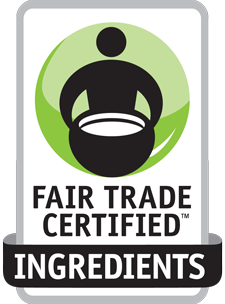Sugar can be extensively used in sweet baked goods and can often feature second on an ingredients deck for a donut, muffin or brownie. Because of the volumes used in bakery, Fair Trade USA said it should be a priority for manufacturers to consider sourcing sustainable sugar that was Fair Trade certified.
Sourcing such sugar guaranteed long-term livelihoods for farmers with safe working conditions, sustainable farming techniques and fair pay, among other things, explained Sri Artham, director of consumer packaged goods at Fair Trade USA.
However, Artham told BakeryandSnacks.com it was not something the US bakery sector had engaged in on a large scale yet.
“It’s a trend that’s just taking off. I think that unlike the confectionery and chocolate industry which has really sort of embraced sustainability and seen the need for it and responded to that need, we haven’t seen that level of take-off in bakery,” he said.
“We can wait and see, but we talked to a lot of manufacturers and retailers and it doesn't seem to be top of mind. Only a couple have taken this approach.”
He said the club store BJ’s was an example of a company that had gained a lot of momentum in sourcing certified ingredients for its bakery products.

Why hasn’t Fair Trade boomed in bakery?
Asked why Fair Trade sugar sourcing had not yet taken off in the bakery sector, Artham said it was due to couple of dynamics.
“The focus in bakery has been on quality, packaging and presentation as opposed to the sustainability of the product. Other claims like gluten-free or dairy-free were also a stronger focus. I personally haven’t seen a lot of discussions or marketing of sustainable bakery products, and I wonder if that is in part because there aren't as many strong manufacturers in bakery because there’s a lot of private label,” he said.
According to Euromonitor International, private label made up 13% of the US bakery retail share in 2013. Branded bakery manufacturers represented 41.2% of the total market, with the top five brands comprising 30.1% of that.
Still, Artham said the high volumes of sugar used in the bakery sector – branded or private label – warranted a focus on sustainable sourcing. “If we want to have a sugar supply 20 or 30 years from now, I would hope bakers get thinking,” he said.
Cost absorption possible
Certified sugar would cost bakers more but he said these incremental costs could be easily absorbed by bakery manufacturers as they were minimal.
Sourcing Fair Trade sugar (predominantly from Belize in the Caribbean or Paraguay if it was organic) could increase ingredients costs by anywhere between 5-15%, he said. However, he said ingredients costs were only a small part of an overall product cost.
“The incremental cost of doing Fair Trade is so small that rarely does the actual retail price change,” Artham said.
Bakers can use the Fair Trade Ingredient or Ingredients logo if the ingredient or collection of ingredients comprised 20% or more of the total product. For the regular Fair Trade logo, all of the product must be made using certified raw materials.
